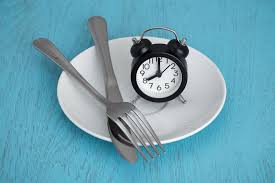
Breaking News
 Zone 00: Permaculture for the Inner Landscape (No Land Required)
Zone 00: Permaculture for the Inner Landscape (No Land Required)
 Sam Bankman-Fried files for new trial over FTX fraud charges
Sam Bankman-Fried files for new trial over FTX fraud charges
 Big Tariff Refunds Are Coming. How Much and How Soon?
Big Tariff Refunds Are Coming. How Much and How Soon?
Top Tech News
 New Spray-on Powder Instantly Seals Life-Threatening Wounds in Battle or During Disasters
New Spray-on Powder Instantly Seals Life-Threatening Wounds in Battle or During Disasters
 AI-enhanced stethoscope excels at listening to our hearts
AI-enhanced stethoscope excels at listening to our hearts
 Flame-treated sunscreen keeps the zinc but cuts the smeary white look
Flame-treated sunscreen keeps the zinc but cuts the smeary white look
 Display hub adds three more screens powered through single USB port
Display hub adds three more screens powered through single USB port
 We Finally Know How Fast The Tesla Semi Will Charge: Very, Very Fast
We Finally Know How Fast The Tesla Semi Will Charge: Very, Very Fast
 Drone-launching underwater drone hitches a ride on ship and sub hulls
Drone-launching underwater drone hitches a ride on ship and sub hulls
 Humanoid Robots Get "Brains" As Dual-Use Fears Mount
Humanoid Robots Get "Brains" As Dual-Use Fears Mount
 SpaceX Authorized to Increase High Speed Internet Download Speeds 5X Through 2026
SpaceX Authorized to Increase High Speed Internet Download Speeds 5X Through 2026
 Space AI is the Key to the Technological Singularity
Space AI is the Key to the Technological Singularity
 Velocitor X-1 eVTOL could be beating the traffic in just a year
Velocitor X-1 eVTOL could be beating the traffic in just a year
Fasting-Mimicking Diet Shown to Be 'Safe and Effective Supplement' to Chemotherapy in...

Preclinical evidence suggests that short-term fasting and diets that mimic fasting can protect healthy cells against chemotherapy, while simultaneously rendering cancer cells more vulnerable to the treatment. However, clinical research evaluating the potential of short-term fasting in patients with cancer is still in its infancy.
This was shown in a new paper published last week in Nature: Communications by Dutch scientists from Leiden who looked at fasting-mimicking diets in patients undergoing chemotherapy for the most common form of breast cancer.
In the trial conducted by Dr. Judith Kroep and colleagues, 129 patients with HER2-negative stage II/III breast cancer followed either a fasting-mimicking diet or their regular diet for 3 days prior to and during neoadjuvant chemotherapy (treatment given as a first step to shrink a tumor before surgery).

 Iran & Epstein Fallout
Iran & Epstein Fallout


